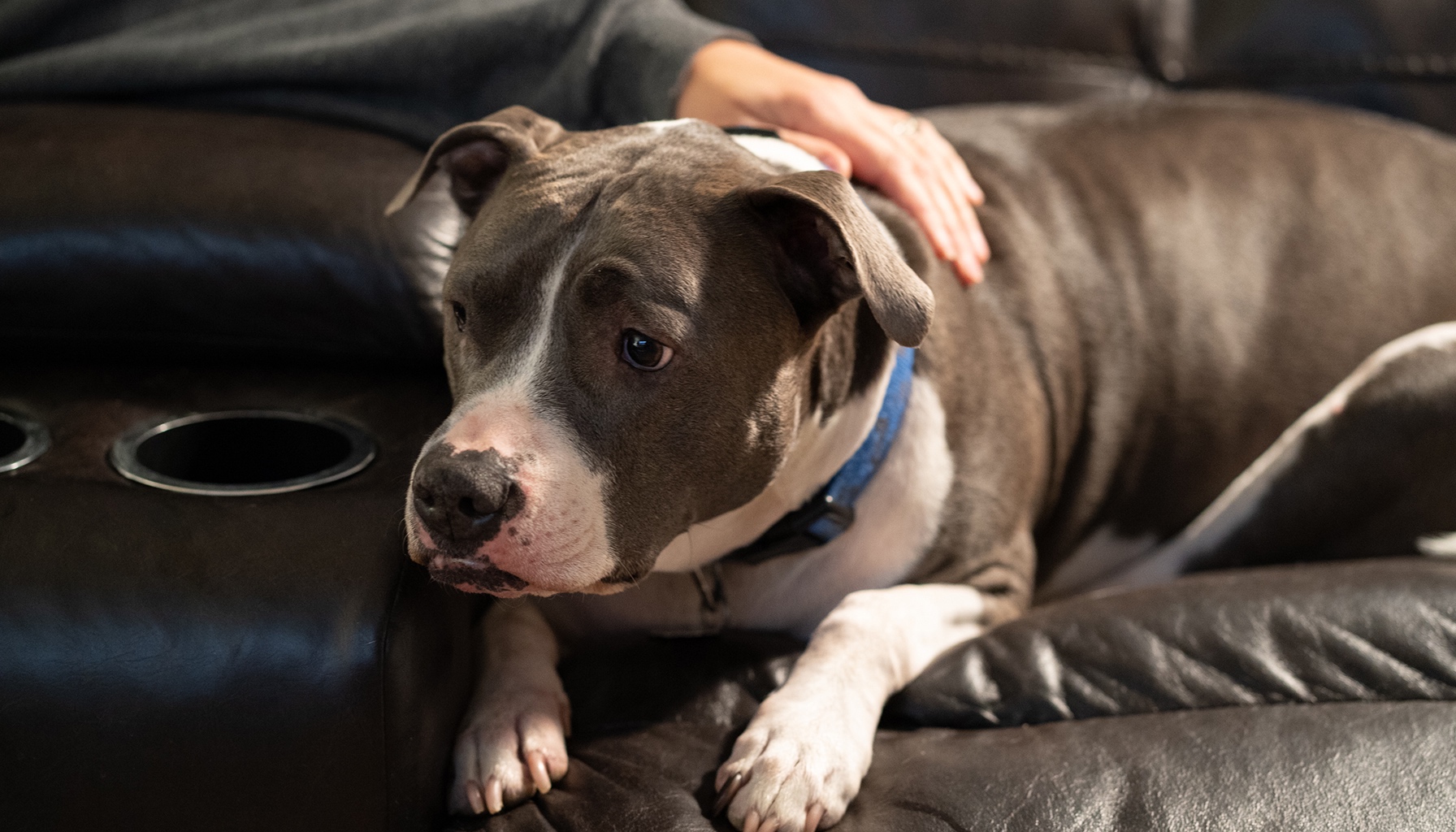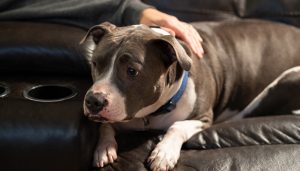Home>Health & Wellness>Behavior & Cognitive Care>Behavioral Changes>Understanding and Managing Old Dog Anxiety


Behavioral Changes
Understanding and Managing Old Dog Anxiety
Published: November 22, 2023
Dogs of all ages can experience anxiety, but it is especially important to understand the causes, symptoms, and remedies for managing your elderly dog's anxiety. Learn more in this comprehensive guide!
(Many of the links in this article redirect to a specific reviewed product. Your purchase of these products through affiliate links helps to generate commission for Pawsomeoldies.com, at no extra cost. Learn more)
As our canine companions age, they often face new challenges, including anxiety. Old Dog Anxiety is not just a phase; it’s a significant issue that can affect your dog’s quality of life. This comprehensive guide will delve into the causes, symptoms, medications, and natural remedies for managing anxiety in older dogs.
What Causes Anxiety in Older Dogs?
Several factors contribute to anxiety in senior dogs:
- Physical Discomfort or Pain: Just like humans, dogs can become anxious when they don’t feel well or are in pain.
- Canine Cognitive Dysfunction: Similar to Alzheimer’s in humans, this condition can cause psychological and physical symptoms in older dogs.
- Loss of Bladder/Bowel Control: A loss in control can be stressful for dogs who have been house-trained their entire lives.
Recognizing the Symptoms of Anxiety in Older Dogs
It’s crucial to identify the symptoms of anxiety in your dog. Common signs include:
- Excessive panting
- Shaking or trembling
- Sleeping problems
- Loss of appetite
- Restlessness
- Clingy behavior
- Uncontrolled barking or howling
- Loss of bladder or bowel control
- Personality changes
- Depression or lethargy
- Excessive salivation.
Types of Anxiety in Older Dogs
Anxiety in older dogs can manifest in different ways:
- Generalized Anxiety: Your dog may seem jumpier or more unsettled than usual.
- Specific Fears: Such as thunderstorms, being alone, loud noises, or strangers.
- Canine PTSD: Anxiety as a reaction to a stressful experience or situation.
Treating Anxiety in Older Dogs
Treatment for dog anxiety should always start with a consultation with your veterinarian. They can help identify the type of anxiety and its causes, and rule out any other medical conditions. Treatment often includes:
- Training and Counterconditioning: Changing your dog’s response to anxiety triggers by replacing anxious behavior with a more desirable one.
- Desensitization: Gradually introduce the dog to the source of anxiety in small doses.
- Medications: In some cases, medications may be necessary as part of the treatment plan.
Natural Remedies and Preventative Strategies
In addition to medical treatments, there are natural remedies and preventative strategies that can help:
- Regular Exercise: Keeping your dog active can help reduce anxiety levels.
- Mental Stimulation: Games, puzzles, and training exercises can keep an older dog’s mind sharp.
- Consistent Routine: Maintaining a regular schedule for feeding, walks, and bedtime can provide comfort and security.
- Comforting Environment: A quiet, safe space where your dog can retreat when feeling overwhelmed.
Final Thoughts on Caring for an Anxious Older Dog
Dealing with old dog anxiety requires patience, understanding, and sometimes a little creativity. By recognizing the signs, understanding the causes, and exploring both medical and natural treatments, you can help your senior dog navigate their golden years with less anxiety and more comfort. Remember, your aging dog relies on you more than ever, and your efforts can significantly improve their quality of life.
